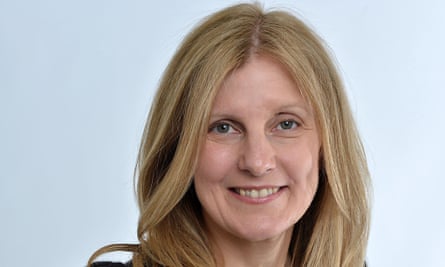Charlie Sheppard, previous Branford Boase award winner, editor of Bone Jack by Sara Crowe:
“A lot of first-time children’s novels are too long – and with the use of computers they’re becoming longer. Whether it’s the Harry Potter effect or because authors no longer have to write out their stories in longhand first I’m not sure, but children’s books seem to be coming in longer and longer and I spend a lot of time cutting out unnecessary detail, waffle and repetition and getting back to the action and main arch of the story. If a book is over 60,000 words then the chances are it’s too long.
Motivation is something I spend a lot of time looking at with new authors. Why does a character behave or act in a certain way – it mustn’t be simply because the author needs them to do so in order to solve a plot problem. Motivation has to be clear, honest and woven through the story. Plot needs to come from characterisation rather than the other way round.
New authors often need to work on the endings of their books. They’ve got a brilliant, original idea, a wonderful voice and a great main character - which have got them a book deal - but sometimes they’ve never properly thought through how to give the story a satisfying ending that ties everything up. Leaving it open-ended in the hope that a sequel will answer the questions isn’t a solution.
Lots of first-time authors think getting a book deal is the hard part. But it’s not. That’s just the start. Editing the book is when the hard work usually starts – and writing a second novel is quite often more difficult than writing a first. First-time authors need to understand that.
I always think that having a first book published is a little like having your first child. It’s something people say they want, and often think will make them happy and their lives better. But that’s not necessarily the case. If you weren’t happy before you had a book published then you won’t automatically be happy after. And no one really warns you about the hard work involved in being an author: the rewrites, the self-promotion, the disappointment and relentlessness. But just like becoming a parent, being an author can also feel like a wonderful achievement, and bring you a sense of purpose and achievement with flashes of joy and pride along the way. But choose your editor carefully. We’re like a strange breed of midwife who come and live with you and are often there at the conception, the delivery and through a lot of the nurture. So you have to get on with your editor. You have to like them, respect them and trust them. And if you don’t then you need to look for another one.”
Jane Griffiths, editor of The Year of the Rat by Clare Furniss and The Dark Inside by Rupert Wallis:
Forgetting that readers don’t know the world and characters you’ve created as well as you do.
This isn’t just a first-time author trap, but first novels tend to be manuscripts that authors spend months (or years in fact, as that germ of an idea becomes something more) carefully crafting, becoming so in-tune with their characters and world that they forget readers don’t have the same knowledge. I’ll often ask a question about a particular scene that isn’t clear or a character’s reaction that I don’t understand and the author will know the answer without hesitation – they’ve just forgotten to put it actually on the page so the reader knows too.
Thinking too much about your readership and not enough about your story.
This is especially true in children’s books, where authors write what they think children want to read rather than focusing on the story they want to tell. Of course you should never lose sight of your reader, but don’t overthink because all too often that shows through in the writing, what’s important is that the voice is genuine and the plot keeps you turning those pages.
Telling not showing
Lots of editors will state this as a pitfall for authors. Good writing doesn’t rely on just telling readers what’s happening or stating how a character feels, instead you should draw on the imagination by creating scenes that people can feel and see and smell. It’s that spark in someone’s mind that will really bring a novel alive for them.
Kirsty Stansfield, editor of Cow Girl by GR Gemin:
First-time writers commonly mistrust their own writing. It takes a lot of confidence, confidence that often comes from being published, to recognise when you’ve made your point and when to leave well alone; so what happens is that first drafts are often too long and prone to repetition. And that constant self-questioning, “Is that clear? Have I got that across to the reader properly?” leads to the old cliche of telling the reader something instead of showing it through characterisation or plot. Less is always more (another cliche!); better to work on the clarity of something subtly (it might only require one more sentence) than risk beating the reader around the head for 60,000 words. And don’t mistake fart jokes for humour – not that they’re not hilarious, obviously! – but they don’t make a funny book by themselves.

Ben Horslen, editor of Half Bad by Sally Green:
Inexperienced writers can sometimes get themselves into trouble by trying too hard to write the kind of books that are currently enjoying success in the market. When a trend or genre heats up, publishers move quickly to publish books into that area. By the time a writer has written their own offering, there’s a good chance that publishers’ lists are already full, or the trend has passed.
The advice that’s usually given to avoid this – to write the story you feel you have to write – is very sound but does have to be taken with a small pinch of salt. Your burning need to write a 20,000-line epic poem about coracle-making in the high arctic may not be met with matching enthusiasm by literary agents and editors!
The bottom line is: use common sense. Know your market but don’t follow it slavishly. Write from the heart but don’t assume that your own passions are universal. Many of the most successful books tell familiar stories in new ways or from an unexpected perspective, so bring yourself to the book, but don’t make it all about you (unless you’re writing your autobiography, obviously). Above all, just write. The single most common mistake that would-be authors make is not finishing that first draft…
Denise Johnstone-Burt (Publisher) and Annalie Grainger (Commissioning Editor) of Trouble by Non Pratt:
Working with debuts is one of the best parts about being an editor. However, after working with a lot, you do begin to see the same mistakes crop up again and again. Here are a few of the ones we’ve seen the most and how you might avoid them:
Overwriting – don’t be afraid to edit. Once you’ve finished your first draft, look at what you’ve got. Where can you make cuts? Is every chapter, every paragraph, every sentence working as hard as it could be to develop a character or progress the story? If not, cut it.
Not getting to the heart of the story quickly enough – we occasionally get authors sending us submissions that start at chapter four or five (or even eight or nine!) rather than chapter one because “those are the best bits”. In which case you probably need to rethink your opening as it’s unlikely that your readers will make it to that chapter if your first one isn’t engaging enough. Of course you need to set up the story, but a really good, strong opening scene will hook your readers in and then keep them with you.
Not reading enough of the books you want to write – we are lucky to have lots of amazing children’s and YA books. Read as many of them as you can. They will help you to understand your audience better as well as help you to understand the other books on the market.
Writing into a popular genre – we have received a lot of dystopian novels recently, on the back of The Hunger Games and Divergent. It is really important to know what is out there and what kids are reading, but don’t get stuck thinking that your book has to fit into that. Publishers want new and original stories and voices. Write the story you want to, not the one you think you should.
Too many plot strands – it can be tempting to throw everything at a book in terms of characters and plot twists. But this can be overwhelming for a reader. Work on your book until you know the story you are trying to tell. Make sure everything is clear and focused.
Emily Thomas, editor of Leopold Blue by Rosie Rowell:
An idea not a plot!
Fiction is mostly defined as a story, with a beginning, middle and end. Even great writers can fail to nail their plot at first. A story can start off full of promise, only to meander aimlessly through lack of preparation...and lose its way. A brilliantly conceived set of characters but only a vague idea of how it all unfolds will be a frustrating experience for the reader.
Over-writing
Sometimes ignoring their natural style, a writer can feel the need to over-describe their narrative. As a writer myself, I have a fondness for adjectives, much to my editor’s exasperation! When I relax and trust both my instinct and my natural self-expression, the narrative doesn’t need all those adjectives, my intention succeeds on the page.
Over-ambitiousness
If you have a passionate idea for a love story set against the backdrop of the economic/political climate of 1930s America – because it feels substantial and intense and atmospheric - you need also to ensure you have done your research. A novel involving a real period or event in history, needs to be airtight when it comes to the facts. Even if your editor is somehow oblivious to erroneous information, many of your readers out there won’t be…
